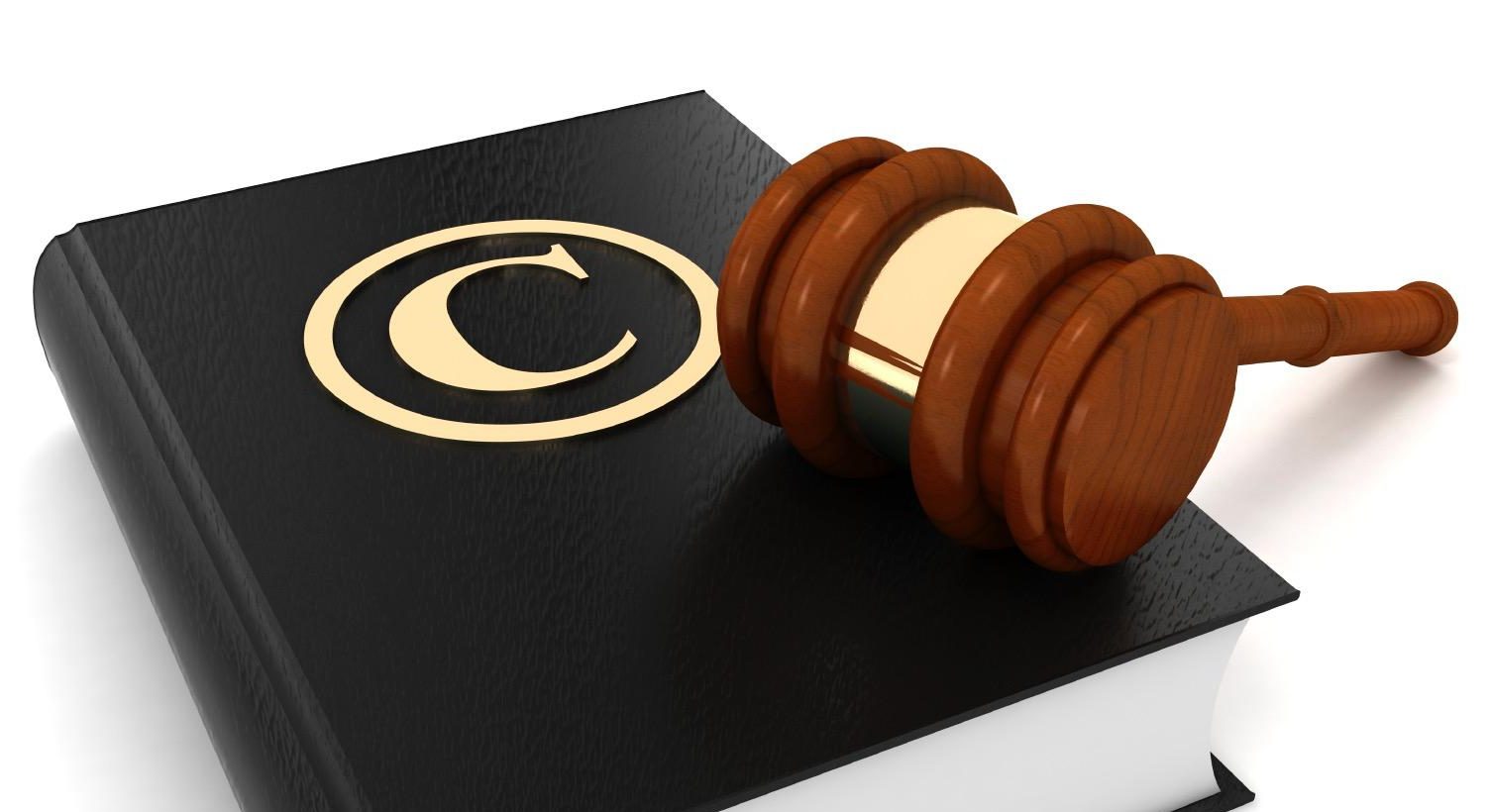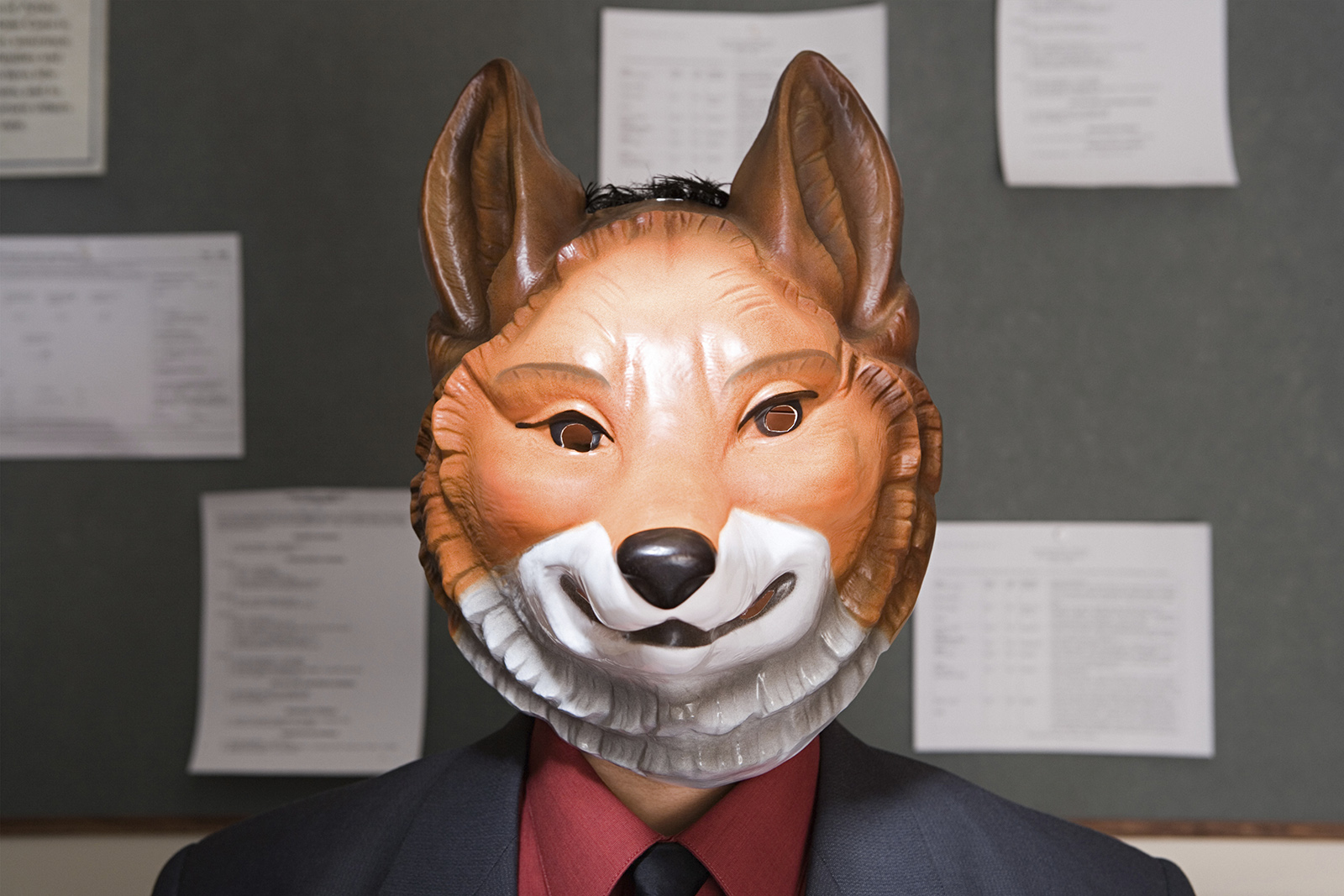Long before the Internet existed, securing your rights to a story, a work of art, a photo or a song was a given if you were the original creator. It’s easy to assume copyright protection over physical work. And while creative theft still happens with traditional media, it’s easier to keep track of plagiarism, stolen images and duplicate content when it exists in physical or audible form.
The World Wide Web has opened up access to creative work to people around the globe. You can download music, read whole books and binge-watch Netflix while you’re riding the train to work. Unfortunately, open access has led to issues when it comes to copyright protections, leading to a rise in lawsuits and other legal action in an effort to protect rightful ownership.
But what if you’re not a writer, an artist or someone whose job depends on creative work? What if you’re just a person who likes to post photos of your vacations to Hawaii, write the occasional Note on Facebook or keep a personal, non-monetary blog? Copyright matters, and it can still be violated. Whether you’re a professional blogger, a local business owner or a social networking junkie, your work can still be copyrighted online.
Defining Copyright in Print and Online
U.S. copyright law dictates that you can only copyright “original works of authorship” in a tangible format as defined by the federal government, which includes:
- Literary and musical works
- Dramatic works, pantomimes and choreographed works
- Graphic, pictorial and sculptural works
- Motion pictures and audiovisual creations
- Sound recordings
- Architectural works
These categories are intentionally left broad to cover a wider range of media, but the basic premise is that anything that you create – whether it’s a sculpture, a piece of text, a photo or a song – is protected by copyright law as long as it’s in tangible form. When the government says “tangible,” they mean that the form must be accessible. In other words, an unrecorded dance sequence that hasn’t been written down or documented in any way would not be subject to copyright law while a recorded performance of that dance would be. There are a few designated instances where copyright law does not apply. In general, you can’t copyright:
- Familiar symbols or designs, short phrases, slogans, names or titles
- Variations in typographic ornamentation, lettering or coloring
- Lists, including lists of contents or ingredients
- Anything that hasn’t been “fixed in a tangible form of expression,” as with the example of the dance sequence above
- Ideas, concepts, discoveries, principles, processes, systems, methods, procedures and devices “as distinguished from a description, explanation, or illustration”
- Works that are made entirely from common information, such as standard calendars, measurement charts and existing lists or tables
When the Copyright Act was first introduced in 1909, the key to obtaining copyright was having a work published. While publication is still an important factor in defining ownership, you don’t have to get your work published in order for it to be protected under the current law. According to the Copyright Office, copyright protections are “secured automatically when the work is created, and a work is ‘created’ when it is fixed in a copy or phonorecord for the first time.” A phonorecord is a fixed representation of sound, such as a CD or vinyl record. That unpublished short story in your filing cabinet, then, would be protected under copyright law.
The Copyright Act of 1976 required notice of copyright on protected works, but when the U.S. agreed to the terms of the Berne Convention in 1989, copyright notice became obsolete. If you’ve got a work that became copyrighted before 1989, however, you should still retain the notice since it’s protected under an earlier version of copyright law. Even though copyright notice isn’t required anymore, it’s still a good idea to post a notice letting people know that your work is protected. Most individuals and companies do. We’ll discuss the details of how to protect your work in a later section.
These are the basics of U.S. copyright law as they apply to general content. But with the rise of the Internet in the late 1990s, the government updated its policies on copyright infringement in an effort to keep up with the evolving nature of content sharing. Anyone can share anything on the web – or can they? There are a lot of gray areas when it comes to online copyright protections, but the Digital Millennium Copyright Act of 1998 sets out what can and can’t be posted without permission. The DMCA also updated portions of the existing copyright law to address digital content.
For the most part, you can’t post or share any copyrighted material online if you’re not the owner of that content and you haven’t been given permission. However, there are exceptions under the “fair use” doctrine, which is a complex set of loopholes that allows certain types of copyrighted material to be distributed without consent in specific situations – most notably, in classrooms for educational purposes only. Whether you can post something under the fair use doctrine depends on four factors:
- What kind of content you’re using
- Why you need to use the original work in the first place
- How much of what you’re posting relates to the work as a whole
- Whether you’re profiting in some way from the work
You should also note that there’s a distinction between plagiarism and copyright infringement. PlagiarismToday.com outlines the differences between these two concepts:
- Plagiarism: When a person plagiarizes content, he reproduces an original work without giving credit to the original author or owner of that work.
- Copyright infringement: In a case of copyright infringement, a person steals an original work and reproduces it as he sees fit, in whole or in part.
The primary difference between the two is that plagiarism refers to a very specific action, and while it’s unethical and against most rules of conduct, it’s not illegal. Copyright infringement is illegal and punishable by law. It’s also a broader concept on purpose in order to “catch every conceivable way that one can violate another’s copyright,” according to PlagiarismToday.com.
Social Media’s Impact on Intellectual Property
If you post something without permission – or someone posts your work without consent – onto a blog or other website, then you may be hit with a lawsuit or even criminal charges depending on the content. But what about social media? Facebook, Twitter, Instagram and other social networking sites make it easy to share content and post photos without giving thought to original ownership. Even worse, if you’re an artist or business person who depends on original content for a living, social media may make it harder for you to retain control over your own work.
Over the last few years, a rumor started circulating through the Facebook community that the company would own people’s content, including photos and any text uploaded to the site, and that they could use this information any way they wanted. Snopes.com debunked this myth in 2015 by citing Facebook’s actual stance on content ownership. According to the “Sharing Your Content and Information” clause of Facebook’s Statement of Rights and Responsibilities, users “own all of the content and information [that they] post on Facebook, and [they] can control how it is shared through [their] privacy and application settings.” The site further designates the type of content that’s protected by copyright and intellectual property law.
Facebook does, however, have the right to use any accountholder’s posts and photos for marketing and other purposes provided that the content isn’t hidden under privacy settings. In a nutshell, anything that you post publicly to Facebook is fair game in terms of reproduction, but that doesn’t mean that Facebook maintains copyright of your work. It only means that public images and content can be shared without additional permission. Anything that you keep private is off limits in any context.
Other social networking sites have similar conditions to which users agree by using the sites’ services. Social media copyright is a particularly difficult area of law since most of what gets shared on sites like Twitter can’t be traced to its original source. Plus, simply attributing a source isn’t always enough to protect you from copyright infringement claims. Citing sources is effective for eliminating a plagiarism threat, but copyright infringement is different because copyright secures the content creator the right to post and distribute his work as he sees fit. If you post a whole chapter from your favorite novel, for instance, with a link to the author’s blog and a citation, this still may violate her copyright protections unless you obtained her permission to use the text.
Social media sites practically encourage copyright infringement due to the nature of open access. If you’re a writer, photographer, entrepreneur or artist who uses social media, then you need to read the terms of service contracts for these sites ahead of time to make sure that you retain copyright to your own work.
How to Use Copyright Protections
The Internet may make it easier for cybercriminals and dishonest people to steal your work, but you can take certain steps to protect it. According to the U.S. Copyright Office, your work is copyrighted from “the moment it is created and fixed in a tangible form that it is perceptible either directly or with the aid of a machine or device.” You may be surprised to learn that you don’t actually have to register for copyright protection with the federal government. In essence, there’s an assumed copyright whenever you create an original work as defined by the copyright law guidelines.
You should also be aware that a “poor man’s copyright” does not actually have any merit. A poor man’s copyright is when you send yourself a copy of your own work for the purpose of protecting your rights. The copyright law doesn’t stipulate any such practice, and a poor man’s copyright doesn’t count as registering with the Copyright Office.
As discussed above, you don’t have to give notice that your work is copyrighted in order for it to be protected under copyright law. However, it’s still a good idea to add the copyright notice in the event that someone else claims unlawful ownership. For texts and non-phonorecords, the following is required for a complete copyright notice:
- The “©” symbol, which is a capital “C” enclosed in parentheses
- The date that the work first appeared in tangible format
- The name of the original author(s)
For phonorecords, the same rules apply, except that the symbol you would use is a “P” inside the parentheses instead of the “C.” As far as where the copyright notice should go, that choice is up to you. Most website owners place it at the bottom of every page. As long as you place it in a spot that’s reasonably visible to readers, it’s considered proper notice. Copyright protection lasts for the length of the original owner’s life plus 70 years for any work created on or after January 1, 1978. Before that date, special rules apply.
Keep in mind that you do not have to register your content with the Copyright Office to maintain copyright protections, but it is a good idea for some situations. For online content, here are some ways to discourage theft and plagiarism:
- Document the evidence. The more proof you have that your work is yours, the better. Save copies of the process if possible, either by storing it on a secure hard drive or emailing it to yourself in stages. Anyone can slap a copyright notice onto a piece of text, but if you have evidence that you created the content, it will be easier to prove rightful ownership.
- Register your content. You don’t have to pay anyone to protect your copyright status unless you want to register with the Copyright Office, which charges a fee for registration. But if you want additional protection, you can register your content with a site like DMCA.com. This site is a paid service that lets users register their content with the site and take advantage of different badges that might deter criminals from stealing work. Keep in mind that posting a notice may not prevent theft, but it might dissuade less motivated thieves.
- Post a copyright notice. Just as you would with a piece of sheet music or print photograph, you can post the copyright notice on your site – or on each individual piece of content that you post online. Remember that the notice must contain the “C” in parentheses symbol, the date of the creation and your name as original author.
There’s a separate process, too, for people who need to register online content with the Copyright Office. Doing so may add extra protection, but at the very least, it will supply you with an appropriate paper trail if you face an unexpected legal issue with the theft of your materials. When you register a website, the Copyright Office expects updated registration applications each time you update the site with new copyrightable material, so you’ll have to decide if it’s worth the effort to officially register your online content.
Dealing with Copyright Infringement
Despite the laws against copyright infringement and the ethical implications against plagiarism, people still steal. Sometimes, the theft is unintentional. You may have even shared or posted content that you got from a friend’s social media page without knowing who the original author was. Accidental theft is common online, and for the most part, it’s easy to tell when someone unintentionally uses your work without permission. The problem comes from intentional theft. Fortunately, there are ways to address copyright infringement.
- Start small. Always start by contacting the infringer directly. As mentioned, sometimes theft is accidental, so sending a polite but firm message regarding your stolen content could resolve the issue. If the theft is intentional, this step may seem pointless. But it’s always good to assume the best and play it from there.
- Get legal advice. If the polite approach fails, talk to a copyright attorney or gather up some legal information on your rights, both local and online, regarding the issue. Copyright infringement issues can be difficult to navigate, but attorneys who handle these cases can prove invaluable. Plus, an attorney can draft and send a custom cease-and-desist letter on your behalf, which may deter criminals from continuing to use your work.
- Pursue small claims court. You have the option to take a business or person to small claims court over the issue, but this approach won’t always be applicable, especially if your infringer isn’t local. Use this option only if you know the person behind the theft – and you’re prepared to represent yourself in court. Otherwise, this can be a costly and unfruitful option.
- Go to the top. Under the terms of the DMCA, you have the right to submit a complaint to the Internet service provider (ISP) that’s responsible for hosting the infringer’s website. Once it receives notice, an ISP is required by law to take down the site until it can establish proper ownership of the content in question. To invoke this portion of the DMCA, you’ll need to send a DMCA take-down letter, which is something that an attorney can help you with. You can also write one yourself using a form letter, but if the situation has escalated to this point, you may want to speak with an attorney anyway.
- Sue only as a last resort. Taking someone to court over copyright infringement can be financially risky, emotionally trying and ultimately not worth the effort. Unless your content is worth a substantial amount of money or potential revenue – and you’ve got enough evidence to prove without a doubt that you’re the sole owner of the work – then you should avoid suing the other party whenever possible. You may lose thousands of dollars in court costs and attorney fees, so decide whether it’s worth the time and money to pursue your case.
The U.S. Copyright Office does not enforce its own policies, but it does suggest that if you plan on taking legal action against someone who steals your work, then you should register the work as soon as possible to safeguard your right to compensation and protect your legal advantage.
In today’s saturated market, it’s impossible for artists, writers, musicians, business people and others in similar fields to stay away from the Internet limelight if they want any traction. There are several ways to prevent someone from taking your content in the first place, but you should also stay on top of what you post to the web so that you can deal with copyright infringement quickly if it happens. Understanding your options for copyright protections – and what to do if your rights are violated – could keep your work safe from cyber thieves.

 Fake Profile Pictures
Fake Profile Pictures  YouTube Impersonation
YouTube Impersonation  Pinterest Impersonation
Pinterest Impersonation  Twitter Impersonation
Twitter Impersonation  Snapchat Impersonation
Snapchat Impersonation  Spambots
Spambots  Catfishing
Catfishing  Facebook Hacking
Facebook Hacking